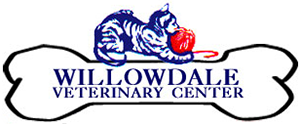Library
-
Fenofibrate is a fibric acid derivative used as an anti-lipemic agent to lower triglycerides (a type of fat or lipid) in dogs. Its use in cats and other animals has not been studied. It is used off label (extra label) in veterinary medicine. Fenofibrate comes in capsule and tablet forms.
-
Fentanyl is an opioid medication used off-label to treat pain in cats and dogs. It is often given as an injection in hospital, but patches may be prescribed to deliver fentanyl transdermally (through the skin) for pets at home. This handout describes common side effects, risk factors, and drug interactions. If a negative reaction occurs, please call your veterinary office.
-
Florfenicol/terbinafine/betamethasone otic (brand name Osurnia®) is a long-acting, topical ear medication used to treat the itching and inflammation associated with certain bacterial ear infections in dogs. It is labeled for use in dogs and not intended for use in cats. Florfenicol/terbinafine/betamethasone otic should only be administered by a veterinary professional.
-
Florfenicol/ terbinafine/mometasone otic (brand names: Claro®, Simplera®) is a long-acting, topical ear medication used to treat the itching and inflammation associated with certain bacterial and/or ear infections in dogs. It is not intended for use in cats. This medication is usually given by veterinary personnel as a single dose.
-
Fluocinolone + acetonide DMSO (brand name Synotic®) is applied topically and is labeled to treat ear inflammation in dogs. It is also used off-label to treat ear infections in cats. Give as directed. Side effects are rare but may include temporary hearing loss or skin reactions. Do not use on pets allergic to corticosteroids or DMSO, on pets with a ruptured ear drum or pets that are pregnant.
-
Fosfomycin is an antimicrobial used to treat multi-drug-resistant bacterial urinary tract infections (UTIs) in dogs. It is used off label (extra label) in veterinary medicine. Fosfomycin comes in granule and compounded liquid suspension forms. Do not use in cats as fosfomycin is nephrotoxic (toxic to the kidneys) in this species.
-
Fuzapladib sodium (brand name Panoquell®-CA1) is an intravenous injection used by veterinarians to manage the clinical signs of acute pancreatitis in dogs. Potential side effects include reduced appetite, vomiting, diarrhea and jaundice. Call your veterinary office immediately if you suspect an adverse reaction to the medication.
-
Gentamicin + betamethasone ophthalmic is a steroid anti-inflammatory eye medication with antibiotic used for the treatment of external eye infections and inflammation of the eye in dogs. It is also sometimes used to manage pannus or pigmentary keratitis in dogs. It may be used off-label in cats and horses.
-
Gentamicin topical is an antimicrobial medication used to treat bacterial infections of the skin. It is approved for use as a spray in dogs to treat surface bacterial infections of the skin. It can be found in combination medications to treat other types of surface infections in dogs, including ear infections. It is used “off label” or “extra label” in other animals.
-
Heart disease is more common in dogs than in cats. It can be due to congenital defects or adult-onset disease. The two most common types of adult heart disease are mitral regurgitation (valve disease) and dilated cardiomyopathy or DCM (heart muscle disease). Diagnosis involves X-rays, ECG, and echocardiography. Treatment depends on the cause of heart disease.
